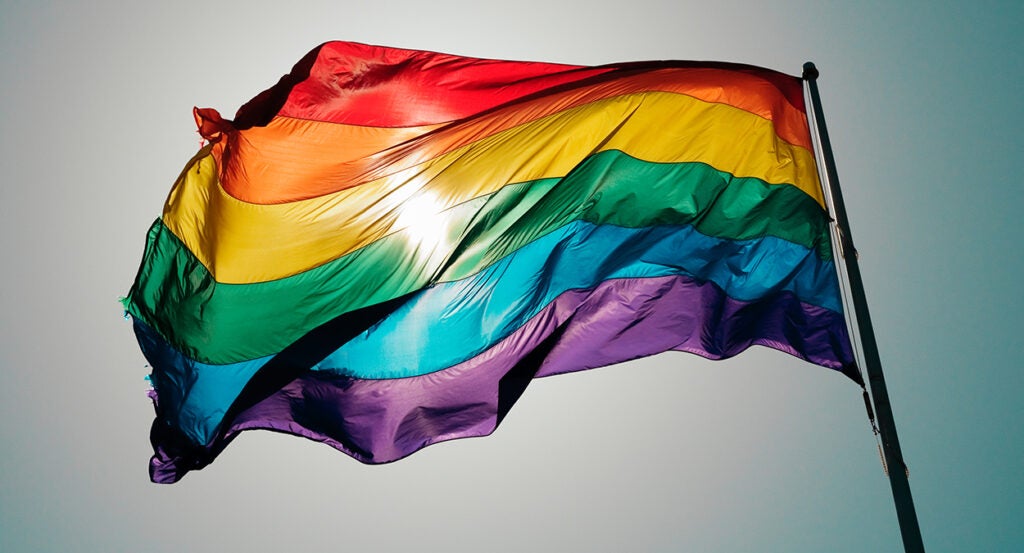Next month, companies will add rainbow flags to their icons and logos, the White House will hold events celebrating LGBTQ individuals, and Target and other stores will likely promote rainbow-themed merchandise. Amid all this “Pride,” the men and women who rejected a homosexual lifestyle will be forgotten.
Why should “Pride” have the entire month of June? That’s a question Jennifer Roback Morse, president of The Ruth Institute, asked herself. She came to the conclusion that if so much of America’s culture is going to celebrate people who identify as lesbian, gay, bisexual, and transgender, she might as well highlight the Americans who rejected those identities.
Morse has christened the first Sunday in June (which is June 2 this year) “Ex-Gay Visibility Day,” in a fitting response to the White House’s commemoration of “Transgender Day of Visibility.”
“It’s not politically correct to talk about ex-LGBT people,” Morse says in a press release provided early to The Daily Signal. “To the gay lobby, they don’t exist, or they’re just lying to themselves or were never really gay in the first place. But I have met many people who have journeyed away from an LGBT identity and are living happy, fulfilled lives with opposite-sex partners.”
Morse mentions research from Father Paul Sullins, a Roman Catholic priest, senior research associate at The Ruth Institute, and former sociology professor at Catholic University, who found that sexual orientation is more malleable than LGBTQ activists claim. The “born this way” narrative doesn’t match up with the results of Sullins’ research.
Sullins previously told The Daily Signal that he doesn’t encourage lesbians, gays, or bisexuals to try to change their sexual orientation unless they feel uncomfortable about it. He emphasized that efforts to change sexual orientation don’t always work, but—contrary to the LGBTQ narrative—they do occasionally succeed.
“When people attempt to change sexual orientation, it is fully successful in my studies about 17 to 20% of the time,” Sullins said. “Most persons who undergo it, meaning about 60 to 65%, report that they are less caught up in homosexual attractions and behaviors and activity.”
Sullins noted that about 30% of the 1,500 lesbians, gays, and bisexuals in a 2020 study on sexual orientation said that they have tried to change their sexual orientation and about 10% said they agreed with this statement: “If I could be completely heterosexual, I would want to do that.”
“So there is a minority of the gay population who wants to change, is not happy with living the way that they’re living,” Sullins said.
As Roman Catholics, both Morse and Sullins consider homosexual activity to be a sin, but they’re not supporting Ex-Gay Visibility Day to shame those who identify as LGBTQ. They say they merely intend to highlight the fact that there are options for people who experience same-sex attraction or gender dysphoria (the painful and persistent feeling of identifying with the gender opposite one’s biological sex), even if they are uncomfortable with their feelings.
The White House is so dedicated to the LGBTQ movement that it chose Good Friday (the day Western Christians commemorate Jesus’ Crucifixion) as the day to release a statement commemorating Transgender Day of Visibility, which coincided this year with Easter Sunday, the holiest day on the Western Christian calendar. The White House played off this timing as a coincidence, but it shocked many Americans, especially Roman Catholics. (The Catechism of the Catholic Church condemns the ideology behind the transgender movement.)
President Joe Biden is unlikely to celebrate Ex-Gay Visibility Day, however, even though it doesn’t coincide with a more popular holiday. Biden touted “transgender leaders” whom he appointed to serve in the federal government, but he is unlikely to mention any ex-gays or detransitioners.
These heretics give the lie to the LGBTQ movement’s claim that it offers the only solution for those who experience same-sex attraction or gender dysphoria. They are living proof that it is possible to reject the movement and they’re often dismissed as irrelevant, so a day of visibility arguably makes far more sense for them than it does for transgender individuals, who enjoy a chorus of support from companies, stores, and government bodies.
The Ruth Institute will release videos about ex-gays and detransitioners over the coming month, but especially June 2, to present hope for anyone who wants another answer. Sadly, it seems Biden, Target, and their allies would prefer that these people remain invisible.
